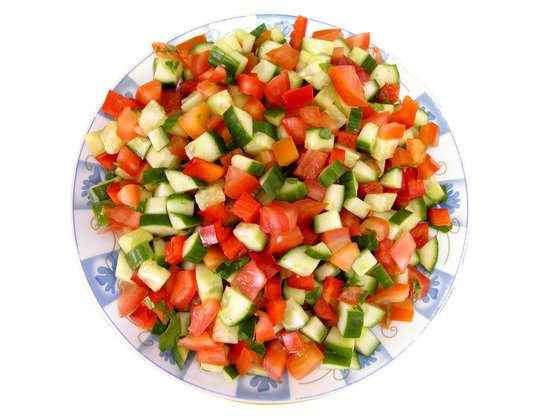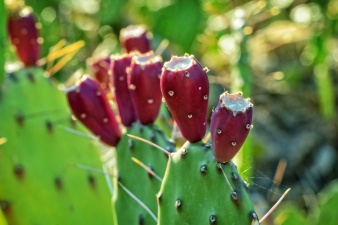Are Israelis eating a mouthful of pesticides for breakfast?
If there’s one food group that Israelis love, it’s vegetables. In fact, all over the Middle East, vegetables are treated with love and presented at table in infinite artful ways. And people are picky about their produce, carefully inspecting each tomato and cucumber before consenting to buy.
But health hazards lurk on the well-loved produce. According to Haaretz, 11% of produce tested by the Israel Health Ministry showed unacceptably high levels of pesticide residues. Of over 5000 samples taken from 108 kinds of foods, 56% had traces of different pesticides.
A scary tomato yielded 50 kinds of residues, while a cucumber showed 30 types. 46 kinds of pesticides were found on parsley. Those are the main ingredients of the famous Israeli salad. Are Israelis indeed eating pesticides with every bite of salad? Studies like the one showing how pregnant Jerusalemite women have higher pesticide levels in their bodies than pregnant New Yorkers support this suspicion.
Even so, the Health Ministry stated that the pesticide residues on produce don’t represent a public health risk. Their argument is that the quantity of pesticides on raw samples doesn’t represent the quality of the same food when it’s peeled and cooked. Then there was the study from Stanford University that concluded that organic food isn’t really healthier.
The Israel Union for Environmental Defense (and common sense) reply that health risks to sensitive populations like children, people with allergies, and the elderly are not yet known, nor what the accumulative effects may be.
At least, there is awareness of the issue in Israel, and testing occurs regularly. Fish and eggs are said to have minimal excess pesticide residues; poultry none. No excess, that is – just “acceptable” levels . Israelis won’t find pesticide-free foods unless they have connections with organic farms. Still, it’s a move forward. The samples of this study were collected from 2006-2010. A later study from 2008-2011 resulted in the banning of three organophosphates and limiting Simazine, another herbicide.
One wonders what pesticide levels might be present in the produce of other Middle Eastern countries, where regulations are not up-to-date and enforcement is slack, or as in Egypt, where the former agriculture minister allowed the importation of carcinogenic pesticides.
I’m looking forward to the appearance of the first “bio-strawberries.” New in the markets last year, these berries are far sweeter and more flavorful than the usual commercial ones. It’s worth the little trouble of more washing to rid them of grit, for the authentic flavor and health benefit of fruit grown organically.
Read more about pesticides in the Middle East:
- 15 Racing Camels In Qatar Die From Pesticide Exposure
- UAE Tests Produce For Pesticides
- Toxic Turkish Produce
::Haaretz
Image of Arab salad via Shutterstock.





Only organically grown vegetables are safe to eat. All nations should make that the requirement for all their food producers, which means truck gardens instead of mega-farms.